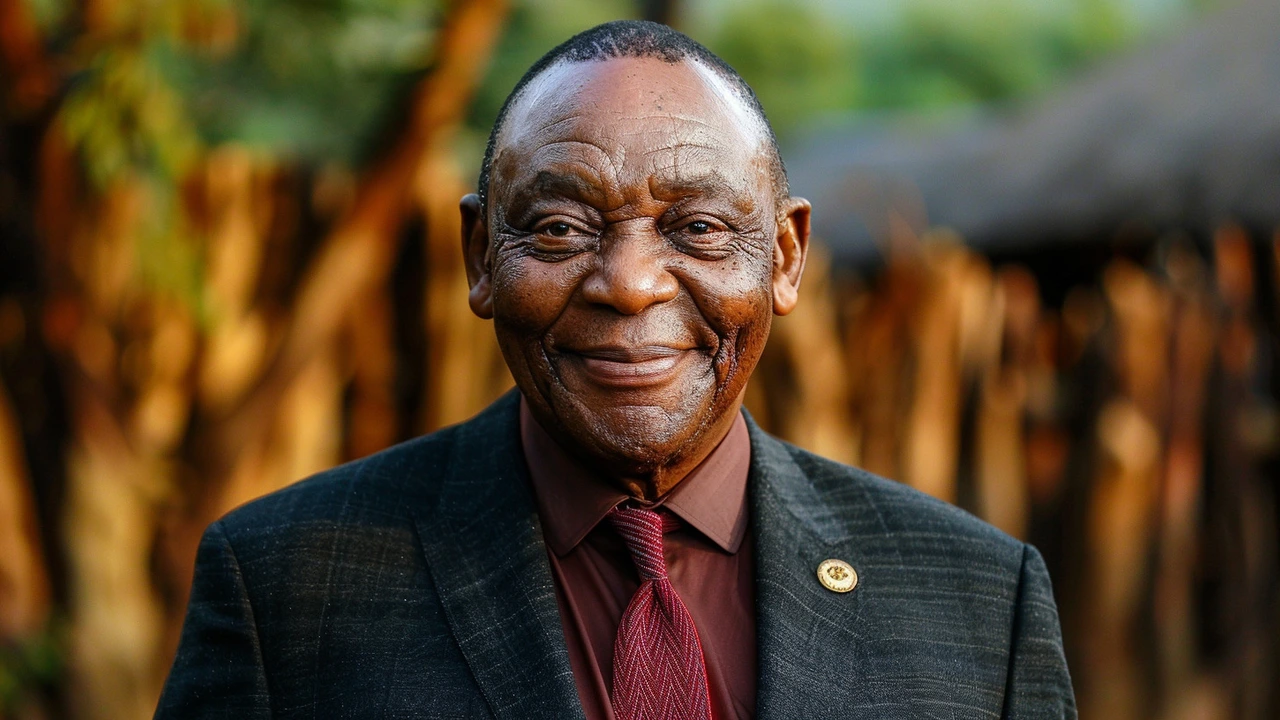South African Parliament Set to Elect President in Crucial Vote
South Africa stands at a pivotal moment as the Parliament gathers today to elect the nation's next president. This election takes place with the backdrop of significant shifts in the political landscape, leaving the ruling African National Congress (ANC) without its erstwhile unchallenged majority. The parliamentary session, steered by the Chief Justice, marks a critical juncture in South African politics.
ANC’s Dependency on Coalition Partners
The ANC, a political behemoth that has led South Africa since the end of apartheid, faces new dynamics this election season. Having lost its 30-year majority in the recent polls, the party is now heavily reliant on building coalitions to steer government. At the heart of this alliance, President Cyril Ramaphosa is seeking support from varied political spectrums to secure a second term.
Key to this coalition is the Democratic Alliance (DA), a significant player holding 87 pivotal seats. However, the DA has yet to publicly confirm its alignment with the ANC, adding an element of suspense to the proceedings. Simultaneously, the Economic Freedom Fighters (EFF) and the MK Party, led by former President Jacob Zuma, have outright declined to join forces with the ANC, signaling their intent to challenge the status quo independently.
Procedural Formalities and the Role of the Chief Justice
Today's session unfolds with a structured agenda, presided over by the Chief Justice. It encompasses not just the election of the president but also the swearing-in of lawmakers and the selection of the Speaker and Deputy Speaker. As per constitutional guidelines, the presence of at least one-third of the 400 lawmakers is mandatory to meet the quorum, a requirement that the ANC comfortably fulfills despite MK Party's boycott.
Scenarios and Potential Outcomes
Two primary scenarios emerge in the context of electing the president. If President Cyril Ramaphosa stands as the sole nominee, he will be re-elected automatically, averting the need for a vote. On the contrary, should other candidates contest, a formal vote will ensue. This latter scenario places the ANC in a position where the backing of coalition partners becomes imperative to secure Ramaphosa’s presidency.
Shifting Power Dynamics in Parliament
The recent electoral results have underscored a significant shift in South Africa’s political landscape. For the first time in decades, the ANC is navigating the complexities of governance without an outright majority. This opens up a platform for intensified dialogues, negotiation, and power-sharing among varied political entities. It also underscores the emergence of a multiparty system that represents a broader spectrum of societal voices, thereby enhancing democratic representation.
Democratic Alliance's Strategic Significance
Within this multifaceted political equation, the Democratic Alliance (DA) emerges as a crucial force. Holding 87 seats, the DA's stance and subsequent decisions are set to influence the broader coalition dynamics. Despite its significant influence, the DA has maintained a strategic ambiguity about its stance on supporting the ANC, thereby preserving its negotiating leverage and strategic options.
Provoking Broader Reflections on Governance
This election, and the processes leading up to it, provoke broader reflections on the nature of governance and power distribution in South Africa. The ANC’s reliance on coalitions echoes larger global trends where no single party can dominate, necessitating collaborative governance. This could offer opportunities for more balanced policies but also requires adept political acumen to navigate diverse viewpoints effectively.
Looking Ahead
As South Africa goes through this seminal moment, the outcomes of today's session will undeniably shape the trajectory of its political and social future. President Cyril Ramaphosa, should he secure a second term, faces the challenging task of uniting diverse political entities to move forward. The unfolding events in Parliament today thus represent not just a routine election but a potential transformative phase for South African democracy.
The landscape of coalition politics in South Africa is a testament to the evolving nature of democracy in the country. As the parliament convenes for these crucial decisions, it reflects the broader challenges and opportunities that lie ahead for South Africa's political institutions, governance, and ultimately, its people.

Comments